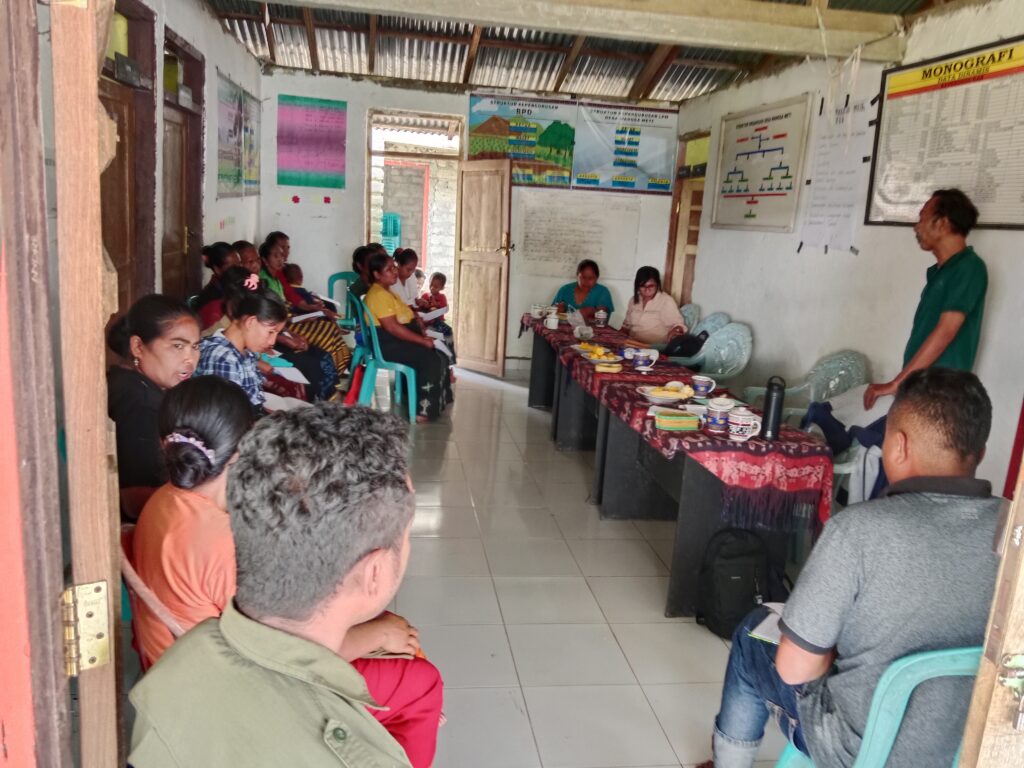Saturday, March 30 2024, the Bumi Lestari Institute (LBL) held business analysis training for groups of indigenous women in Wanggameti village. Taking place in the Wanggameti Village Office hall, this event was attended by representatives of traditional women. They are eager to deepen their knowledge of business analysis.
As a resource person, Mr Yulius Opang, Director of Pelita Sumba, was present, who led the training session. The material presented is very important, especially in the local economic context. One of the main focuses is explaining the basic concepts of business analysis. Participants are given a comprehensive understanding of the process of calculating production costs, expected income, and the objectives of the analysis.
In essence, business analysis aims to identify the capital needed. Calculate potential profits, estimate risk of loss, and find efficient ways to manage business costs. To achieve this, participants are invited to understand how to calculate the amount of costs required and separate income and expenditure costs.
For example, Lombok farmers must carefully calculate how much it costs to procure seeds, medicines and other costs. As well as estimating income from harvests. Next, the steps that need to be taken in conducting business analysis. Including, mastery of relevant technology, market understanding, and efficiency efforts in spending.
The training aims to provide participants with a broader understanding of how to analyze opportunities and challenges in the business world. It is hoped that the participants will gain sufficient knowledge to choose the appropriate type of business. Also, calculate the capital needed, and understand the potential profits and risks that may arise.
Mrs. Maria Ana Milla expressed her sincere gratitude for the implementation of this training. He stated that previously, they had only run the business without considering in depth the risks and market opportunities. However, thanks to this training, they now have a better understanding of choosing a type of business, managing finances and understanding the market.
Lastly, the Bumi Lestari Institute hopes that by holding this training it can empower women in Wanggameti Village to be able to choose and run businesses more wisely, and reduce the risk of loss. In this way, it is hoped that businesses run by women in the village can develop sustainably and provide greater benefits to the local community.


